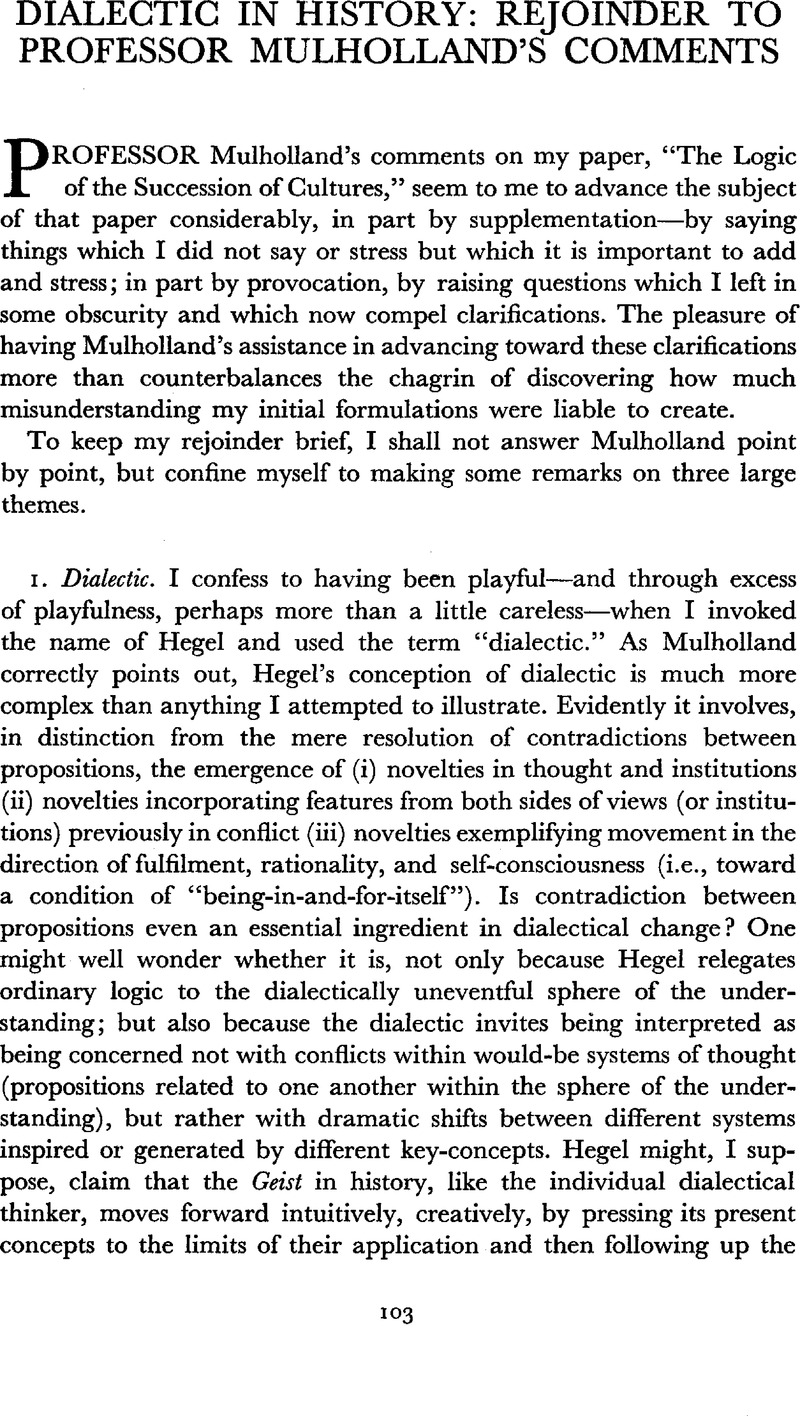No CrossRef data available.
Published online by Cambridge University Press: 01 March 1971

1 In History and Theory, Beiheft 9 (Studies in Quantitative History and the Logic of the Social Sciences), 1969.
2 It is essential to my argument that the resulting changes in the world be incompatible even when they are attempted by different people; but this point is guaranteed by the generality of the change-descriptions involved. Suppose p T ∼ p describes a particular person's position changing from prone o t supine. Then p T ∼ p is incompatible with pTp (the result of forbearing to bring about pT ∼ p), regardless of whether it is a question of the person's rolling over himself or being turned over by someone else; and Od(Pt ∼ p) is equally incompatible with Of(pT ∼ p), whether these norms are addressed to someone else or to the person himself.
3 Just as to perceive a contradiction between two statements a person must accept both as calling for assent; his problem is that he cannot assent to both. MulhoUand puzzles me greatly by suggesting that “the fact that the states of affairs described by contradictory statements cannot both exist at the same time” is an argument against supposing that any conflicts between norms involve logical contradictions. Would he claim it is an argument against supposing two statements can be in logical contradiction? Contradictory statements can be made at the same time, though only one of them truly describes an actual state of affairs. Likewise contradictory norms may appear (they may even be promulgated by the same authority); the problem is that only one of them will be manifested in the action at a given time of any given person to whom they both apply. The analogy, it is true, is somewhat obscured by the fact that when judges decide a certain norm shall now and henceforth be given effect they express their decision by saying “It is the law that N” and “It is not the law that ∼ N.” So one might hold that only norms freed from contradiction by the repudiation of alternatives exist; then von Wright's logic of norms and my application of his logic would have to be interpreted as dealing with tentative norms or norm-candidates rather than norms proper, at least when any question of contradiction arose. The same points about the impact of contradictions in history could be made, reformulated to take into account this distinction.